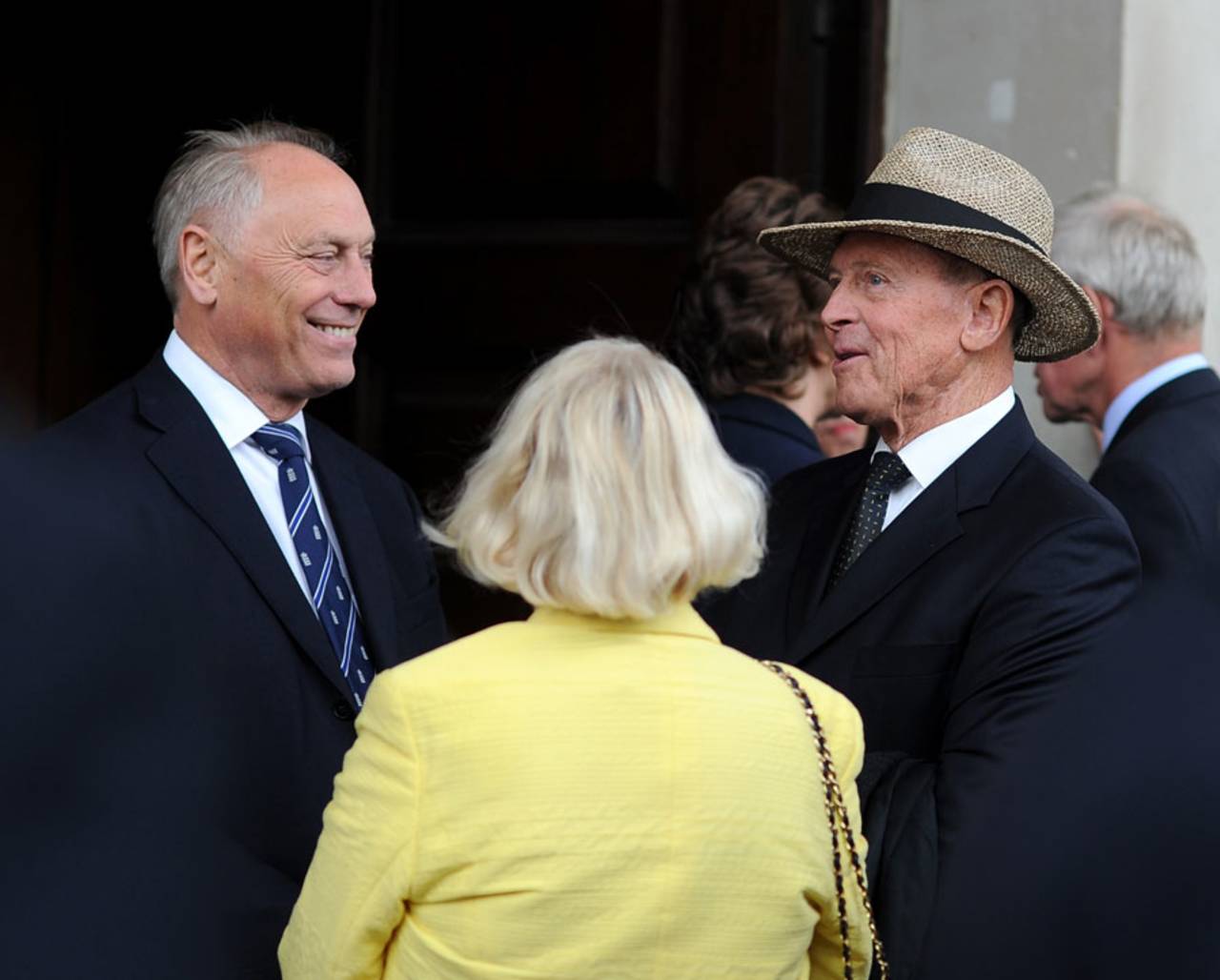Let's talk about the ECB's strategy document
There has been all too much negativity in the wake of news that plans are afoot to overhaul English cricket
Nicholas Hogg
05-Mar-2015

Colin Graves has been called profit-motivated, but is that such a terrible thing? • Getty Images
Judging by the comments on George Dobell's article announcing the grandly titled "Strategy Conversation Summary" commissioned by the ECB - an acronym that will possibly become CEW: Cricket England and Wales, as the ECB brand is considered "toxic" - it's highly unfashionable to ever agree with the national game's management.
At the risk of being uncool, I'm going to support some of the proposals put forward in this "wide-ranging review", which, as critics keep forgetting, is a debate, a work in progress, and not a tablet carved in stone.
Analysing from a point of pragmatism rather than dogmatism, I do know that English cricket has problems - many. From the results of our three lions, lack of a dynamic T20 structure, morbid county cricket, as well as appalling player management from the boardroom to the coaching staff - see Kevin Pietersen, Michael Carberry, Steven Finn et al for details - I can plainly see, as can the majority of cricket fans, that someone, whether it is the ECB, the CEW, the BBC, the CIA or the FBI, needs to shake things up.
Firstly I feel the need to defend a man I've never met. When Colin Graves fired a statement about the game - and once again, that darling of the board, KP - across the bows of HMS Downton and Moores, I actually listened to what he had to say. And that's rare: actually paying attention to a guardian of the cricket realm. Because this wasn't a measured, pandering-to-business-twaddle, a bland by-the-book press release swaddled in corporate caveats. This was a man described by Dobell as "notably straightforward, with a preference for decisiveness and unashamed addressing of the problems" speaking his mind. The gruff, no-frills-Yorkshireman stereotype is too easy to apply, although the same can be said for Graves being called an "entrepreneur" for setting up Costcutter, a chain of budget corner shops. Steve Jobs or Bill Gates, yes, "entrepreneur", but not someone selling cornflakes for twice the price of the local supermarket.
Still, a man who built a retail empire in a crowded marketplace is a man driven to succeed. Dobell knows better than I, and perhaps all of us, regarding the cloak-and-dagger movements within the ECB corridors, but I doubt multimillionaire Graves is motivated by the wage packet - which he doesn't even begin to collect until his official job starts later this year. Critics have moaned that he is a businessman, a profit-driven philistine with nothing but pound signs in his eyes. Geoff Boycott called him "very quiet and a nice man - but underneath he has got some steel about him".
Well, cricket, whether we play it for our country, school or club, needs cash. Salaries, subs and tea money need to be funded. I have no problem with the concept of a cricket-loving sugar daddy (okay, so I've just described helicopter-riding fraudster Allen Stanford, but of course we'd never fall for a conman like him again, would we?) overseeing a game played by millions, and which needs millions (of pounds / dollars / rupees) to be played.
Anyway, let's get back to the task in hand, revitalising English cricket. Dobell outlined the key aims from the document as follows:
Become the clear No. 2 team sport in England and Wales by delivering what the customer wants.
Less, more commercial cricket: quality over quantity.
Dominant EPL T20 competition(s).
Revamped Championship with fewer games: one division, three-day matches both back under consideration.
Possible 50-over FA Cup-style competition.
Lead the way in social integration with strong Asian and female involvement.
England team to be relevant to the community with cricketers as folk heroes and role models.
Successful community sport with year-round cricket indoor and outdoor.
On these bullet points I find it hard to disagree with Clarke and Co, even the one-division proposal - it's worth noting premiership rugby has also put this concept on the table. And who could argue that cricket shouldn't help integrate in a society increasingly riven by differing cultural values? (And please don't forget the ever-widening wedge of class.) Not since 2005 has an English cricketer been a folk hero, when the game could be found on TV screens across the country, not just a chosen few households or pubs with costly subscription packages (even my gym has refused to sign up for cricket as a separate deal, though it screens premiership football).
Note the use of "possible" in suggesting a 50-over FA Cup-style competition. I'm encouraged that the ECB has declared nothing in the game is sacrosanct. This is a positive for debate, not a negative. A debate is a forum for ideas and design. Any forum in which certain concepts are off limits is a regime.
Sport and capitalism are closer bedfellows than purists like to admit. Sport, like capitalism, is a Darwinian process where the fittest survive. That fitness may be profitability or results. Or both - as results often mean money. In an era of austerity and government cutbacks into funding sport, it is up to the administrative bodies, the management and the players and fans, to support the game we love. Not for one second would anyone but a fool say this is going to be easy. Even compared to British politics, cricket administration can look like a chimp's tea party. However, and perhaps I'm in fairy land here, I'm hopeful that the ECB consultation process is just that - a first-draft blueprint for cricket, a work in progress that all those involved in the game can edit for success.
Nicholas Hogg is a co-founder of the Authors Cricket Club. His first novel, Show Me the Sky, was nominated for the IMPAC literary award. @nicholas_hogg